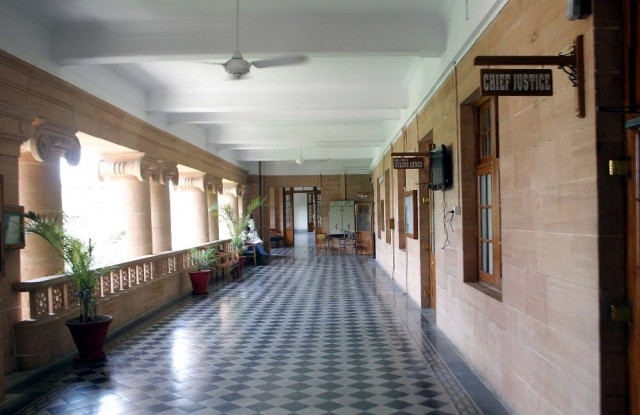As citizens suffer: KESC, SSGC hold each other responsible for promises
SHC reserves order on power utility’s petition.

As Karachi continues to suffer a shortage of electricity, the Karachi Electricity Supply Company and Sui Southern Gas Company fobbed off the blame for low generation and never ending load shedding on each other.
Their lawyers traded barbs at the hearing of a constitutional petition filed by KESC that wants the SSGC to provide it 276 mmcfd of gas to keep its turbines running.
Arguing the case for SSGC, Anwar Mansoor Khan submitted that the gas company was not privy to a meeting of the Economic Co-ordination Committee during which it was told to ensure the supply for KESC. The government cannot force SSGC to increase KESC’s supply, he maintained.
He said that according to the national gas policy of 2005, KESC falls in the fifth category of consumers in terms of priority. Domestic consumers come first. He referred to an ECC decision rejecting a move to change the gas policy to give preference to independent power producers.
SSGC’s Anwar Mansoor Khan said that despite repeated requests from SSGC, KESC had failed to sign a general sales agreement and make payments. It owes SSGC Rs2,000 billion. “Will I sell my gas to a consumer or a company that has defaulted on payments?” he asked. “Why doesn’t SSGC shut its entire supply to KESC?”
He argued that SSGC was being “blackmailed” and forced to submit to a decision. This was done to reduce production which leads to loadshedding for longer durations, forcing people to come out on to the streets and create a law and order situation. Once this situation was created, SSGC was asked to increase supplies,” he argued, adding that “while KESC is earning the money, the SSGC is put at a loss.”
Without naming the ‘beneficiaries behind the legal veil’, Anwar Mansoor Khan asked the court to have KESC’s accounts audited so that every one then knew where the money was going and into whose accounts.
Foreigners have come to Pakistan and are looting our country, he said.
He said that KESC was recovering 90 per cent of its bills from domestic and industrial consumers along with fertiliser companies. The ten per cent default comes from the federal and provincial governments and their allied departments, including the Karachi Water and Sewerage Board. This is the real problem for KESC, he submitted.
He said that SSGC had resorted to closing CNG stations on all four Sundays during November but it didn’t help reduce loadshedding. The problem is basically related to circular debt, he submitted.
SSGC’s lawyer concluded his arguments by saying that if the government increases supply to SSGC, which is just a distributor, it will provide the same amount to KESC if the utility pays its bill.
KESC’s lawyer Abid S Zuberi rebutted SSGC’s arguments by saying that the petition was not against SSGC but mainly against the federal government. He said despite directives from the ECC and high court, SSGC was supplying it only 120 mmcfd (and not 276 mmcfd).
KESC cannot produce electricity with this quantity. Loadshedding means losses as consumers do not pay their bills. KESC has had to buy furnace oil which eats up all the bills it has recovered, argued its lawyer.
The government promised KESC 276 mmcfd, he said, referring to the comments of the federal government in the petition and said it was admitted by the respondent federal government that it controls SSGC, OGRA etc.
“Let them shut the supply and I will stop production,” threatened KESC’s counsel. “The Gas Policy of 2005 violates and militates against Article 153 of the Constitution of Pakistan as only the Council of Common Interest can formulate a gas policy while the 2005 policy was framed by the ECC,” he added.
He said that SSGC was unnecessarily contesting and opposing the KESC petition as KESC was in fact supporting SSGC when it asked the federal government to pay the Rs16 billion owed by KW&SB.
He maintained that while SSGC curtails its supply to KESC on different pretexts, it never cuts the supply to captive power units (generating units by factories, industries).
KESC is producing power for the people, he argued. “It is facing power theft, transmission and distribution losses due to kunda connections, strikes by workers and political interference and for this reason the first company which bought KESC has fled. We may be forced to do the same,” he warned.
When the government is ordering an increased gas supply and commits a quantity, how can SSGC differ as a public-funded company with the government holding shares.
After hearing the two sides at length, the bench reserved its order.
Published in The Express Tribune, December 23rd, 2011.



















COMMENTS
Comments are moderated and generally will be posted if they are on-topic and not abusive.
For more information, please see our Comments FAQ